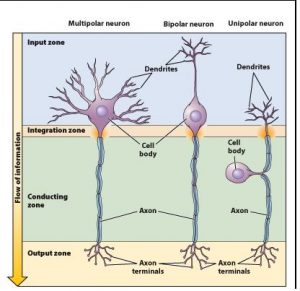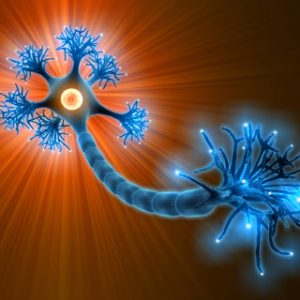Multiple Sclerosis, also known as MS, is a chronic and progressive disease. The symptoms can range from tremors, double vision, blindness, inability to speak, and in some severe cases, paralysis and death. One’s symptoms depend on where MS has targeted, and there is no cure as of today.
MS gets its name from the plaques, or “sclera”, that form in the brain where cells have been destroyed. The word “sclera” is Greek, meaning “skleros” = hard. These sclera may occur anywhere in our brain. Typically, the location of the sclera is the reason for a certain symptom. For example if sclera form near or on the optic nerve, which is responsible for sight, then symptoms of blindness or double vision may arise.
To better understand the full force of the disease, we need to discuss how it occurs in the first place.
Our central nervous system (CNS) consists of our brain and spine, and in the CNS we have helpful messengers that transmit signals between each other to tell our body to move, breathe, and basically survive. These helpful messengers are called Neurons. Neurons have a “head”, “body”, and “tail” end. Messages are received at the head, which is composed of dendrites and the cell body, and transmitted down the body (axons) to the tail (axon terminal), which finally sends the signal over to the soma of the adjacent neuron.


The axon has a protective blanket around them called myelin, and myelin is created by a special type of cell called an oligodendrocyte. MS is a disease that is caused by one’s own immune system targeting their own oligodendrocytes and myelin, resulting in the neuron losing its armour. Without it, it can no longer send signals down to its neighbours!

MS itself does not target the oligodendrocytes, but rather our own immune system does. Our immune system is our bodies form of protection against harmful substances (known as antigens) that may have entered our body. The antigens are recognized by our immune system and eliminated to protect us. For an unknown reason, our immune system causes an autoimmune reaction against the oligodendrocytes. An autoimmune reaction occurs when one’s body mistakes it’s own healthy cells for antigens.
So, why should we care about all this?
The problem is that scientists are still unsure what actually causes MS. We know the “where” and the “how”, but not the “why”. There are speculations in the field with convincing evidence pointing to autoimmune reactions that target the oligodendrocytes being the “cause” of MS. However, without knowing 100% why MS occurs, scientist cannot formulate a cure! Doctors have been prescribing medication to improve quality of life by treating individual symptoms, but this is only a short-term solution and varies from patient-to-patient.
MS can be a very frustrating experience for patients because the symptoms can be so diverse, and their doctors may not be able to give them a proper diagnosis for years! Because of this, many afflicted individuals are told that their symptoms are “in their heads” or given an improper diagnosis.
There is a dire need for more funding and research on MS.
For more information, please take a look at a crash course video posted on youtube by “Osmosis”.

Written by Taranom Behzadi

